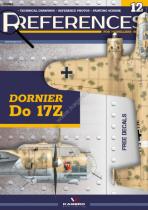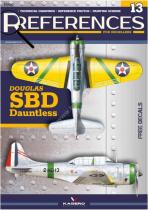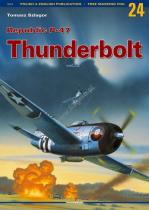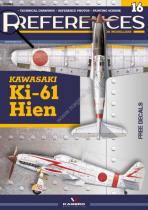The Focke-Wulf Fw 190 D, better known to its contemporaries as the Langnasen Dora (Long-nose Dora), was the finest project created by Kurt Tank’s design team to see service in numbers. It duly capitalized on all their previous experience in building high-performance fighters. The D-9, the aircraft’s most popular variant, was first flown on 7th September 1944. Soon it made its presence felt both on the western and eastern fronts. A total of some 700 machines (sources vary) were assembled in Focke-Wulf plant at Cottbus, as well as by Arado and Fieseler contractors, by the end of the war. The D-9 powered by Jumo 213A-1 engine was practically the only variant to see serial production. The later D-11, D-12 and D-13 variants, powered by Jumo 213F-1 engines, were approved for production in March 1945, and only a few were delivered. D-12’s armament was one engine-mounted 30-mm MK 108 cannon and two 20-mm MG 151s in the wing roots. The D-13 differed from the D-12 by having a 20 mm engine-mounted MG 151 cannon in place of the 30 mm MK 108 unit. If only handled with skill, the Dora was a formidable opponent, capable of outrunning and outmanoeuvring any allied fighter it was pitted against.







